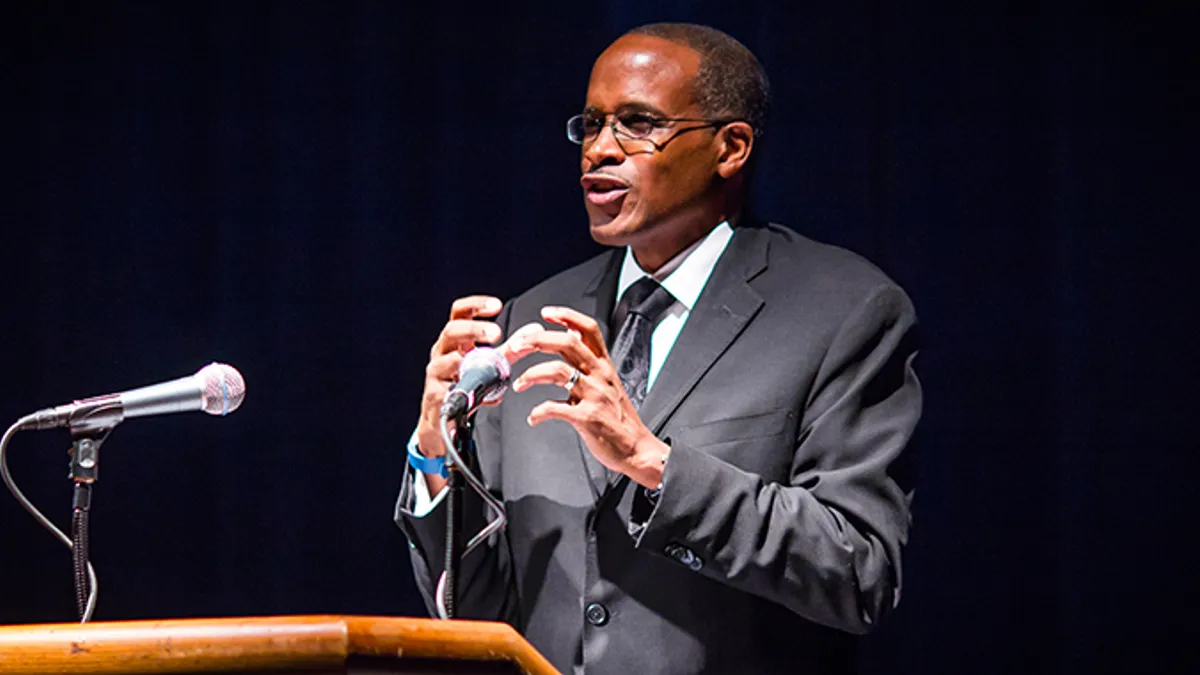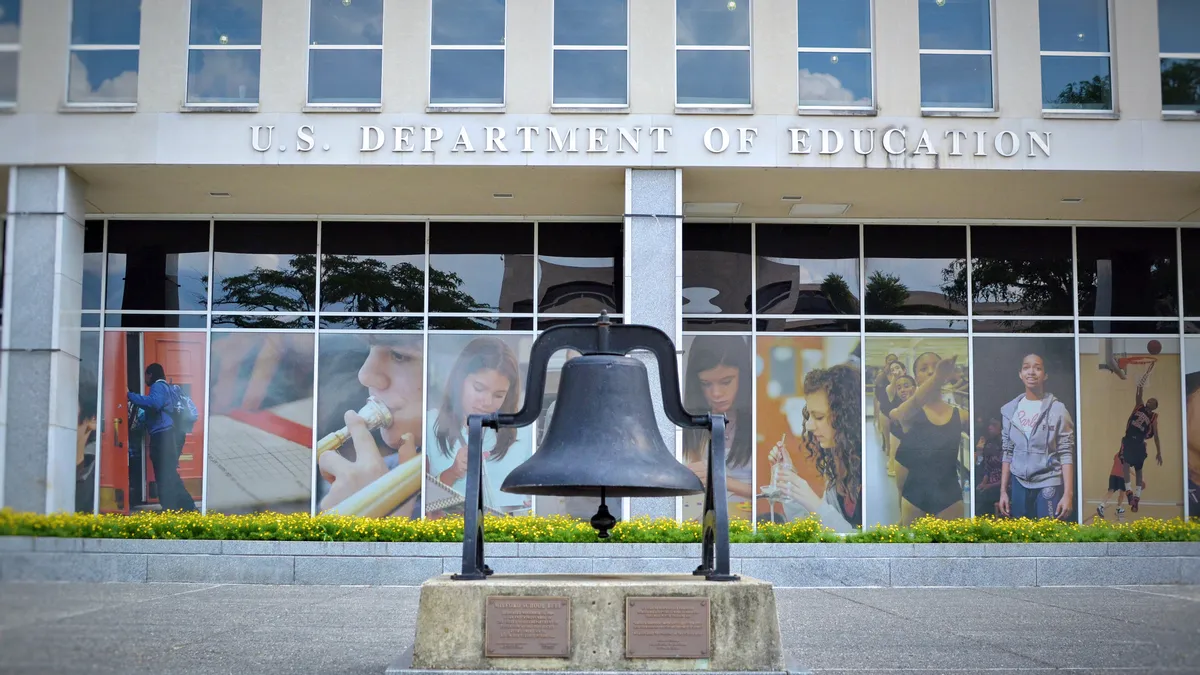In recent years, there has been an increased interest and concern in the rapidly rising student debt. Rightfully so. None of us, including those who lead colleges and universities, want students to graduate with massive debt that slows their ability to build safe, financial stable families which are important for communities and ultimately the nation.
The Obama administration rightfully sought to address part of the problem, unscrupulous operators of for profit institutions that overwhelmingly targeted students of color and those from low income backgrounds. I’m not talking about the obviously shady institutions, you know, like Trump University, but those that portrayed themselves as credible vehicles to obtain a degree (such as the often cited Corinthian Colleges), something that is of great value especially for the groups that were primary targets of these institutions.
In 2016 the administration offered a borrower defense plan, one that would allow students to seek legal recourse from institutions that they felt defrauded them by taking thousands of dollars and subsequent debt for a degree that would be worthless. Scheduled to go into effect in July of 2017, the DeVos Department of Education hit the pause button on the plan.
Many groups, including historically Black colleges and universities, while affirming the idea of the plan, saw it as being overly broad, potentially allowing frivolous claims to be made against institutions that serve a complex student body, one that due to a large percentage of low income students struggle to finish school not because of a poor academic program, but limited finances. The worst case scenario would have been additional costs borne by these institutions to defend themselves from disgruntled former students who struggle to repay their loans and frustrated with their own career advancement.
I really like the idea of borrower’s defense, but not just from predatory programs. Many times, borrowers need defense from a more personal foe. It is the enemy that is seen in the mirror every day.
Sometimes borrowers need defense from themselves.
As a president, my greatest frustration is with students (and families) that refuse to follow or even consider the professional advice from the experts on their campus. The wisdom of faculty, advisors, and career professionals goes unheeded and unsought on campuses all across the country every year. So when a student graduates and finds themselves not knowing which way to go, they have wasted time and money by thinking all they had to do was go to class, and a great job and career would magically appear.
At Dillard University, we are part of a consortium of schools that received a United Negro College Fund (UNCF) Career Pathways grant. We realize that we can do a better job matching skill development with employer needs so that the transition from school to work is more seamless. But my challenge is that even with a pathway that is defined and fully functional, every year students refuse to follow the path. I told parents and new students this year during orientation that the career path is like the yellow brick road. It is winding with twists and turns, and there may be a reason or two to briefly leave it, but overall follow the yellow brick road!
Unfortunately, many won’t. The Atlantic recently reported that fewer than 20% of student use their campus career center. Students sometimes apply for an internship but when it asks for an essay they quit the process all together. Lecturers in their field come to campus, and they won’t attend because they have never heard of the person, not knowing that today relationships are still very vital for success.
My greatest frustration is often with families. In fact, for first generation, low income students and students of color, families can often be the greatest deterrent to success, point Professor John L. Glenn of Atlanta Metropolitan State College made in powerful way a couple of years ago. Families may guilt a student for pursuing an education instead of working a job to help the family right then. I’ve seen students turn down fully paid summer programs which would jump start their pathway to their career because their mom said it was too far away – five hours. International experiences? Forget about it. One student didn’t want to go for fear of being “Taken,” like the movie, saying she didn’t have a daddy that could come get here.
Okay, that last example is pretty comical which is how the student meant it but it underlines fears that in the end limit opportunities. On our campus last year we even solicited a range of campus professionals to meet with seniors that fall to make sure they were set up to sprint into grad school or careers by matching them together for informal advising. I was given a list of seven names. Only 3 met with me. A fourth contacted me, replying to the email I sent her to meet.
She asked me were we having classes on that particular day because the weather was bad, completely ignoring the reason I sent the email she responded to months prior.
Our most vulnerable student populations do need to be protected against bad actors offering what might appear as education. But these entities are in the minority. What is more critical and impacts a tremendous number of students is not getting the full value of the money spent for education. Just going to class is not enough; it never has been. But when so many students waste the out of class experiences, the mentoring relationships, the career services, they are not only building debt, but it is debt for something that they never used.
I once heard someone say education is the only thing people are willing to pay for and not receive. We need to teach students and families to get their money’s worth, so that they turn their debt into an investment, rather than money they have wasted.
They need to be protected, often from themselves.
Walter Kimbrough is president of Dillard University in New Orleans.

















